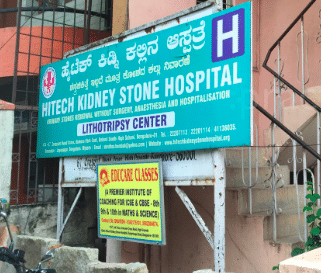Get the App
For Doctors
Login/Sign-up
Dr. P Vijayan
Urologist61 Years Exp.
MBBS, MS - Urology, FRCS
Bangalore
₹ 300 at clinic
Hitech Kidney Stone Hospital
Change Clinic
# 240, 32nd Cross, Jayanagar 7th Block
Consultation Fee: ₹ 300
View All Slots
Personal Statement
Our team includes experienced and caring professionals who share the belief that our care should be comprehensive and courteous - responding fully to your individual needs and preferences...read more
Doctor Information
Speciality
- Urologist
Other treatment areas
- Dermatopathologist
Education
- MBBS , Jawaharlal Institute of Postgraduate Medical Education and Research (JIPMER), Puducherry, , 1964
- MS - Urology , , 1967
- FRCS , , 1975
Languages spoken
- English
Clinic Location
# 240, 32nd Cross, Jayanagar 7th Block
Clinic of Dr. P Vijayan
| Clinic's Name | Fees |
|---|---|
| Hitech Kidney Stone Hospital | ₹ 300 |
| St. Philomenas Hospital | ₹ 150 |
Get Help
Services
Book Clinic Appointment with Dr. P Vijayan
St. Philomenas Hospital
Mother Teresa Road, Xavier Layout, Victoria Layout, Viveknagar. Landmark: Near to Ashoknagar Police Station
₹ 150 at clinic
See all timings


